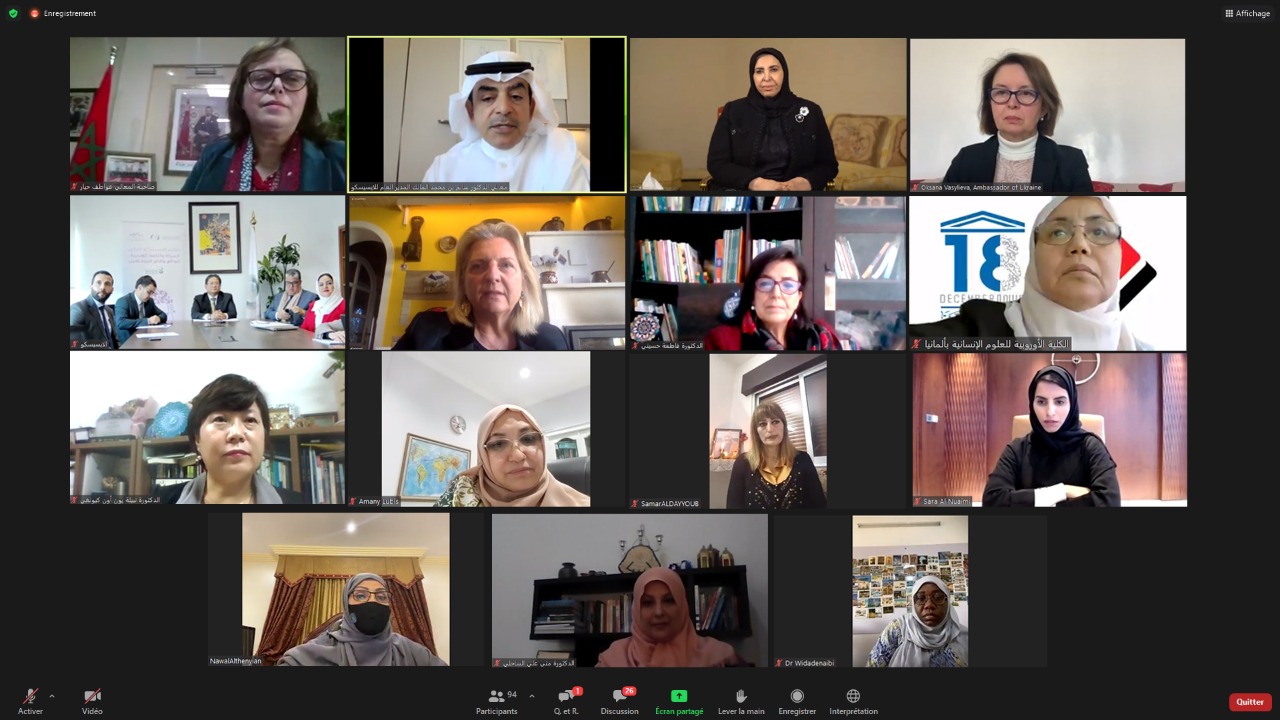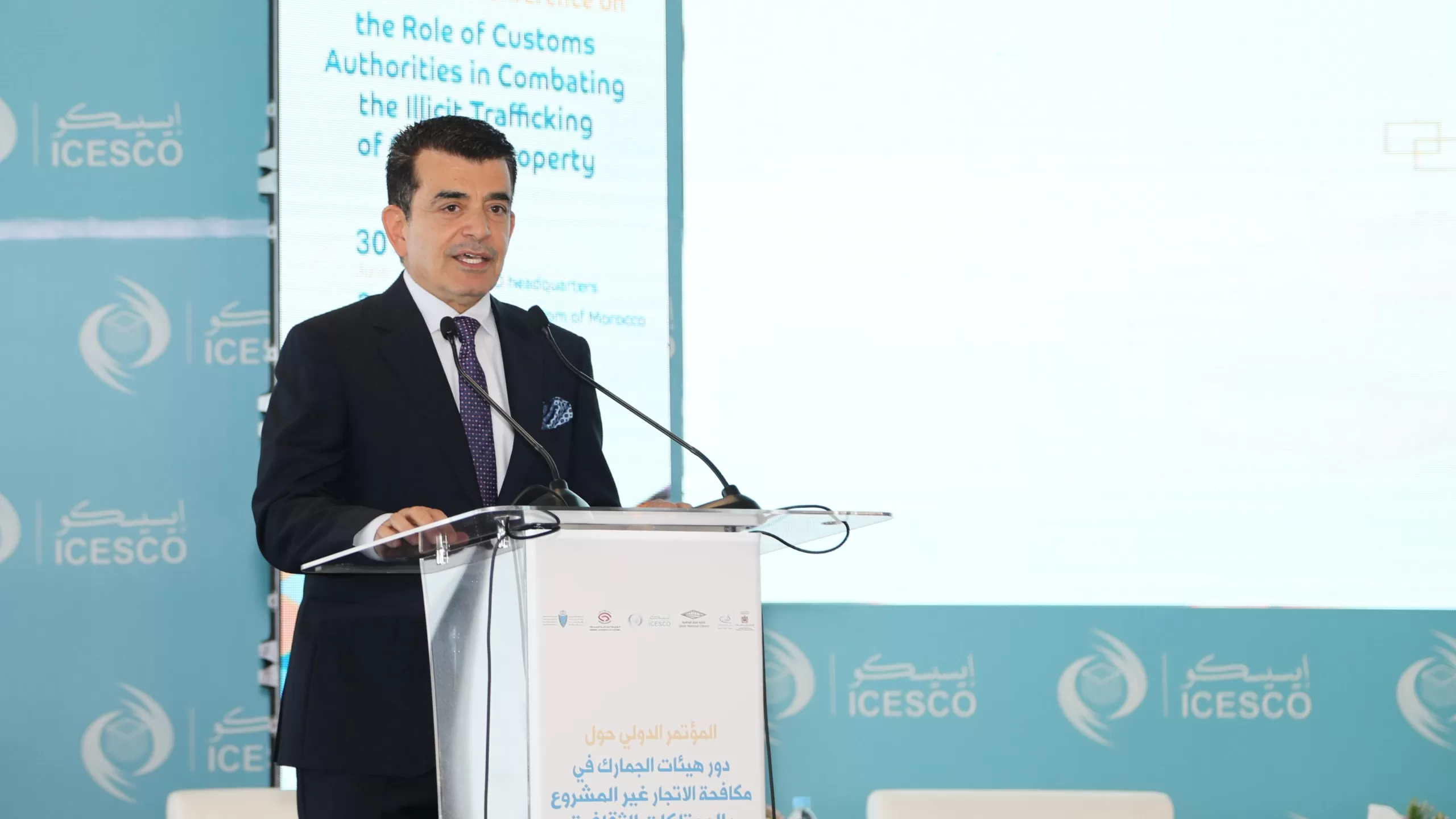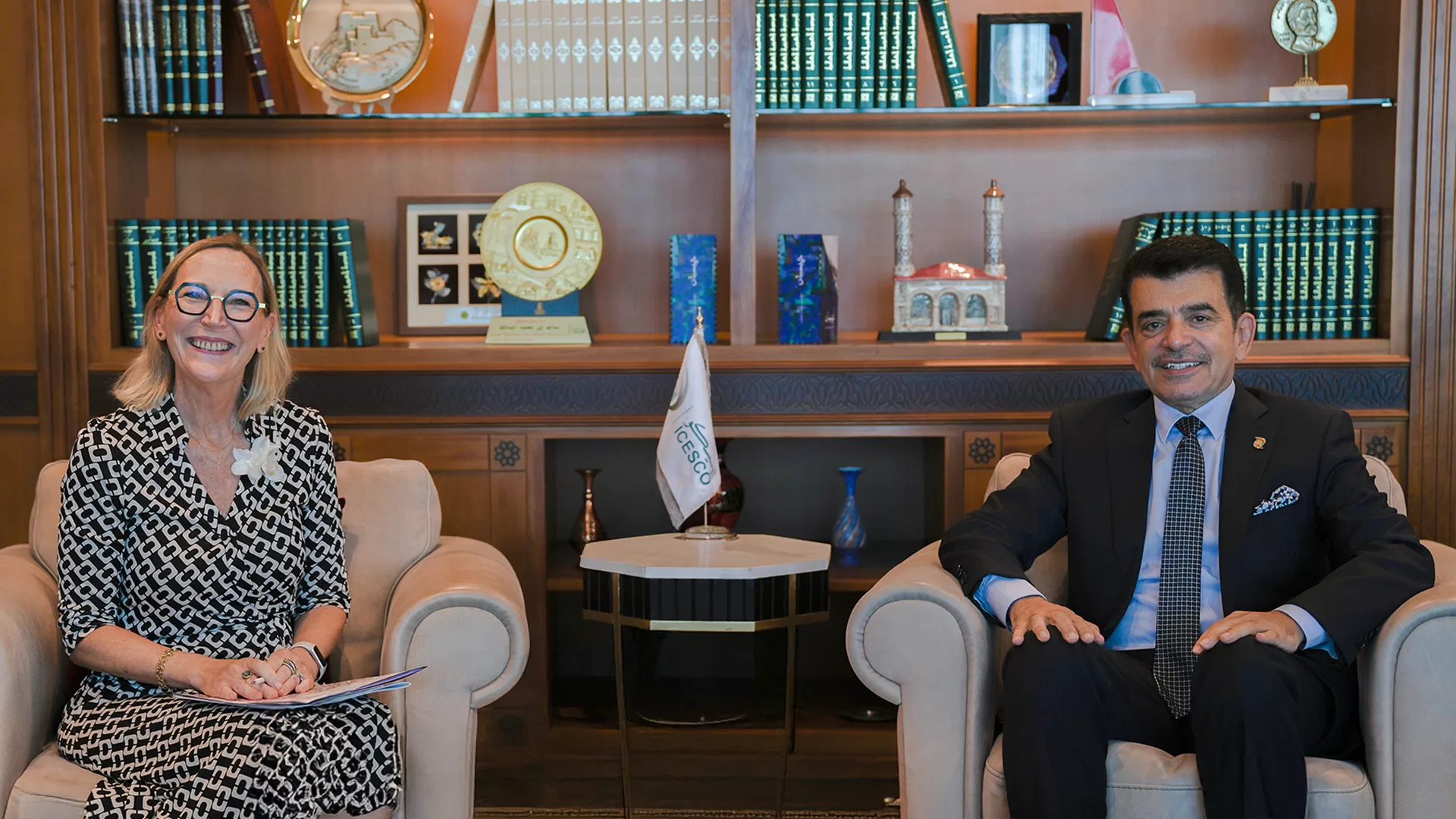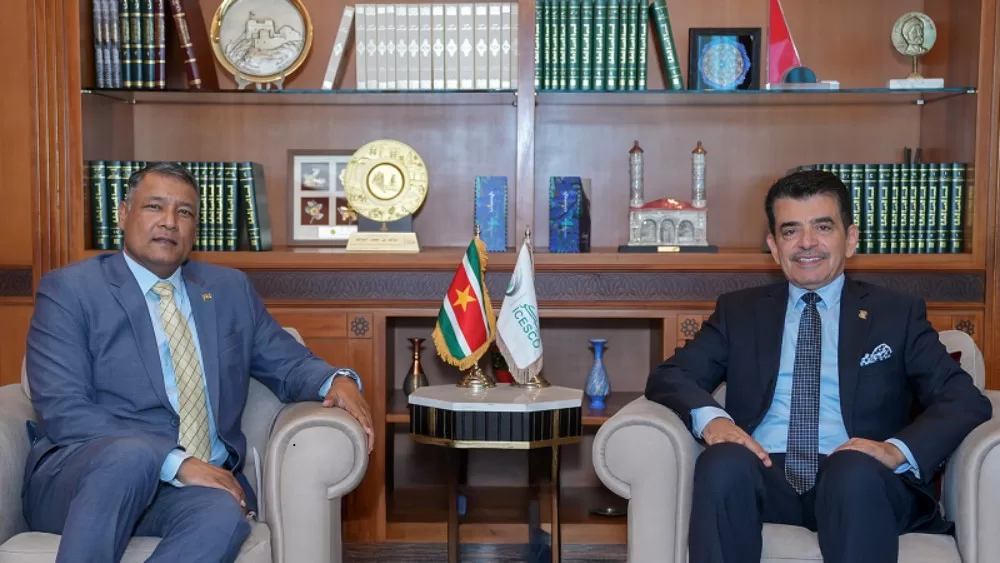
With high-caliber women participation, ICESCO International Conference on “Women and Arabic Language: Realities and Future Prospects” kicks off

21 December 2021
With valuable testimonies on the remarkable contributions of women to promote the role of Arabic, develop its curricula, and promote its various aspects, the ICESCO International Conference on “Women and Arabic Language: Realities and Future Prospects” kicked off today, Tuesday 21 December 2021, via videoconference. The conference is organized by the Islamic World Educational, Scientific and Cultural Organization (ICESCO) and saw high-caliber participation including senior officials, poets, and specialists in the Arabic language.
The Conference is held as part of the celebration of 2021 as the Year of Women, which was granted the high patronage of His Majesty King Mohammed VI of the Kingdom of Morocco, and in observance of the World Arabic Language Day 2021.
The opening session was marked by the address of Dr. Salim M. AlMalik, ICESCO Director-General, who stated that dedicating this Conference to women and the Arabic language aims to discuss their contributions, following a sound scientific methodology, especially that old language references did not give due consideration to the role of women in promoting the language.
He added that women nowadays have scored major professional and academic gains and made significant contributions to enriching linguistic research, stressing that promoting Arabic is a responsibility both men and women share.

Moreover, the Director-General stated that as part of its new vision, ICESCO accords great attention to women’s poetry as it launched this year the ICESCO prize for Women’s Poetry, under the theme, “Poem of the Year of Women.” He added that the Organization will soon publish a poetry collection of the best participating poems, titled, “When they brightened the world with their poems.”
Following the Director-General’s address, Sheikha Dr. Souad Mohammad Al-Sabah, Founder of Souad Al-Sabah Publishing and Distribution House in the State of Kuwait, gave an address wherein she reaffirmed that the role of women in promoting Arabic is akin to their relation to life: without women, the language loses its vitality and is in a fight for its existence. She added that despite the disregard of women’s presence in Arabic poetry in particular and Arabic literature in general, women managed to leave their marks on Arabic and its various linguistic and literary aspects.
She pointed out that the Conference constitutes a major step to do justice to Arabic, adding that she has fought all her life for Arabic and written various works to preserve its beauty.

In her address, Dr. Aawatif Hayar, Moroccan Minister of Solidarity, Social Integration and Family, stressed that Arabic is one of the widely spoken and richest Semitic languages worldwide, highlighting its rich vocabulary.
She also pointed out that using Arabic in knowledge production was not reserved for men. “Women’s creativity has contributed to the rich production of knowledge. In this regard, the Kingdom of Morocco has made tremendous efforts to bridge the gender gap and considerable gains in ensuring gender equality,” stated the Minister.
In her address delivered by Ms. Vasylieva Oksana, Ambassador of Ukraine to the Kingdom of Morocco, Ms. Emine Dzhaparova, Deputy Minister of Foreign Affairs of Ukraine, emphasized that Arabic enjoys a rich cultural diversity, underlining that women play a key role in building peace. “Thus, women should participate in various fields on an equal footing with men. I participated in the launch of several initiatives to enhance the presence of women and strengthen Ukrainian relations with the Arab world,” added Ms. Dzhaparova.
In her address, Ms. Karin Kneissl, former Austrian Minister of Foreign Affairs, indicated that studying Arabic during the past years enabled her to travel and discover many things. She called on the authorities and parties in charge of teaching Arabic to raise awareness of its importance and ensure its dissemination and survival.
At the close of the opening session, which was moderated by Dr. Majdi Haji Ibrahim, Head of ICESCO Center of Arabic for Non- Arabic Speakers, the participants watched two videos respectively on ICESCO Women’s Poetry Prize “Poet of the Year of Women 2021” and the 2nd Edition of ICESCO ‘Bayan’ Award for Creative Expression in Arabic 2021. The Center also launched its website.



